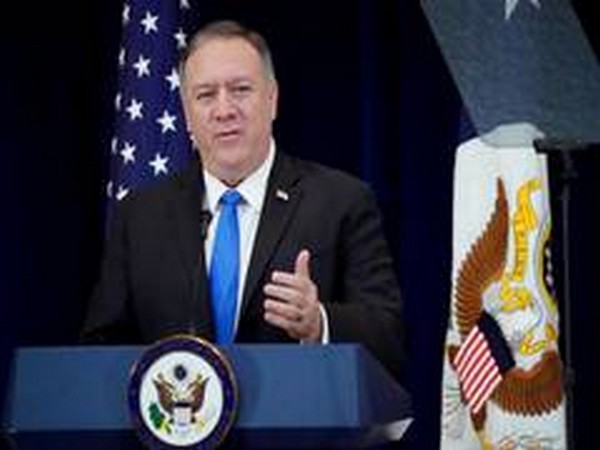U.S. House Democrats question Pompeo aides on Saudi weapons, cite war crimes concerns
Trump abruptly fired Steve Linick from his position as the State watchdog on May 15, as he investigated the administration's decision to pursue billions of dollars in military sales to Saudi Arabia despite congressional opposition. Members of Congress had objected to the transactions out of concern they would exacerbate the huge humanitarian cost of the war in Yemen, possibly leaving U.S. officials vulnerable to war crimes charges.

- Country:
- United States
Top aides to U.S. Secretary of State Mike Pompeo went before a Congressional panel on Wednesday to defend President Donald Trump's decision to fire the former State Department inspector general while he was investigating weapons sales to Saudi Arabia and allegations that Pompeo misused department funds. Trump abruptly fired Steve Linick from his position as the State watchdog on May 15, as he investigated the administration's decision to pursue billions of dollars in military sales to Saudi Arabia despite congressional opposition.
Members of Congress had objected to the transactions out of concern they would exacerbate the huge humanitarian cost of the war in Yemen, possibly leaving U.S. officials vulnerable to war crimes charges. "Did Mr. Pompeo fire (Linick) because he was getting closer and closer to matters that were embarrassing for Mr. Pompeo and his family… matters that implicated the State Department in a scheme to bypass Congress and sell lethal weapons that might be used for war crimes?" asked Representative Eliot Engel, the Democratic chairman of the House of Representatives Foreign Affairs Committee.
Linick's firing was one of a series of Trump's dismissals of officials responsible for preventing fraud and abuse at government agencies. The firings prompted concern among members of Congress, including some of Trump's fellow Republicans, over whether Trump was interfering with legitimate oversight. "The news of Inspector General Linick's firing did come as a surprise... Any time one is terminated, it naturally will raise some questions," said Representative Michael McCaul, the committee's top Republican.
However, he noted that Inspectors general (IG's), like other executive branch officials, serve at the pleasure of the president. Linick was also investigating allegations that Pompeo and his wife Susan misused government resources by having department staff handle personal matters.
'LAPSES AND SHORTFALLS' Three officials - Brian Bulatao, Under Secretary for Management, acting legal adviser Marik String and Clarke Cooper, assistant secretary for political-military affairs - testified.
Bulatao accused Linick of a "variety of lapses and shortfalls," including improper email practices and failure to complete an important audit, which he said caused his firing. Linick, who served as State IG for seven years, has denied wrongdoing.
Underscoring tensions between Congress and the administration over Linick's firing, Bulatao and String agreed to testify only after the panels announced subpoenas. Congress had requested an investigation into the Trump administration's May 2019 decision to push ahead with $8 billion in military sales to Saudi Arabia, United Arab Emirates and Jordan by declaring a "national emergency" over tensions with Iran in order to sidestep congressional objections to the sales.
Lawmakers had been blocking many of the sales for months out of concern the Raytheon smart bombs and other equipment might contribute to the human catastrophe in Yemen, where bombings by a Saudi-led coalition have caused heavy civilian casualties. A report issued by the State Inspector General's office in August found State did not fully evaluate the risks to civilians in Yemen when it pushed through the huge precision-guided munitions sale, although it did not violate the law.
In his opening statement, Cooper said Iran's actions since the decision to pursue the weapons sales justified the national emergency declaration. He also said both Saudi Arabia and the UAE are committed to reducing civilian casualties in their air campaign in Yemen.
(This story has not been edited by Devdiscourse staff and is auto-generated from a syndicated feed.)
ALSO READ
High-Stakes Diplomacy: Renewed U.S.-Iran Nuclear Talks in Geneva
Tensions Rise: U.S.-Iran Nuclear Talks Set in Geneva Amid Missile Threats
Resumption of Iranian Gas Supplies Powers Iraq Forward
Tensions Rise as Iran Eyes Nuclear Program Rebuild
High-Stakes Talks: U.S. and Iran Navigate Nuclear Crossroads










